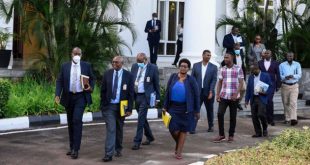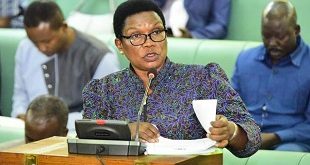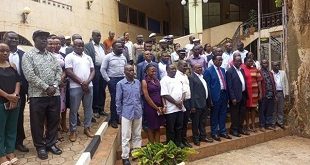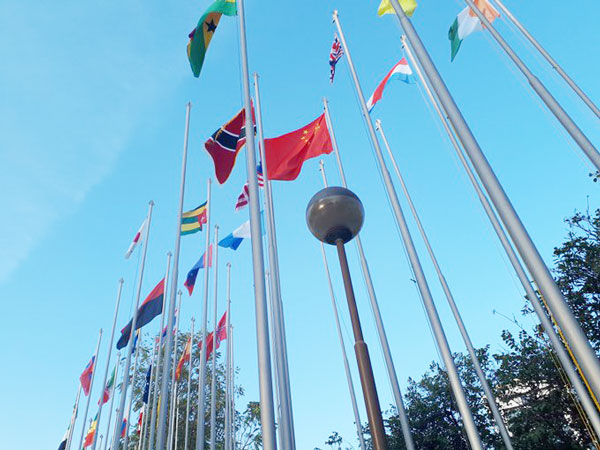
Uganda Hosts the 11th African Union Sub Committee of Directors General of Customs Conference from 16th – 20th September 2019, at Speke Resort Munyonyo
Kampala, Uganda | THE INDEPENDENT | Uganda will September 16-20th host Directors General and Commissioners of Customs from 55 African Union (AU) member countries.
The tax leaders will include technocrats from international bodies such as World Customs Organization, UNCTAD, IGAD and various diplomats.
This conference will hold discussions on matters of customs and action points from last year’s 10th meeting held in Moroni Comoros that ended with a Moroni Declaration on Combating Corruption in Customs and the adoption of the AU Draft Trade Facilitation Strategy.
In Munyonyo, the main discussion will be on implementation of the AfCFTA and the theme of the conference is “The Entry into Force of the Agreement establishing the African Continental Free Trade Area (AfCFTA) – Implications to African Customs Administrations.”
“It is a privilege for Uganda to be hosting such a high level annual continental meeting, and it speaks to the confidence the continent has in Uganda in terms of hospitality and diplomacy,” said Dicksons Kateshumbwa, who is Commissioner Customs, URA and Chairman World Customs Union (WCO) Council.
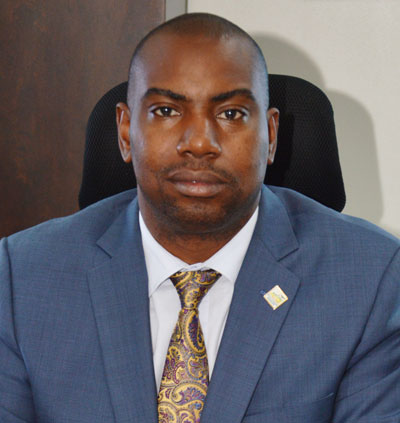
He added that, “This meeting also comes a time when Uganda is chairing the World Customs Organization Council, whose global conference was held in Africa for the first time in Kampala last year. It is also an opportunity for Uganda to show case its abilities to the rest of the continent such as the various trade facilitation initiatives by URA customs.”
Who is coming
The Constitutive Act of the African Union provides for Specialized Technical Committees. These Specialized Technical Committees report are responsible to the Executive Council. The African Union Sub Committee of Directors General of Customs is responsible to the Specialized Technical Committee on Trade, Customs and Immigration.
The Sub- Committee is responsible for Customs Cooperation one of the Thematic areas under the Department of Trade and Industry. The AU Subcommittee of Directors General of Customs (also referred to as Commissioners of Customs meet annually and the meeting Uganda is hosting is the 11th while the 10th Conference was held last year in Moroni, Commoros.
The The African Union Trade Observatory Dashboard
The new African Union Trade Observatory Dashboard is another step towards the African Continental Free Trade Area, which will help the continent harness its economic potential. It will provide the African Union, the African countries and the private sector with data and statistics that are essential for the sound monitoring of continental trade and evidence-based policy-making.
The Observatory will collect data and analyse trade across borders in Africa, addressing the current lack of up-to date-and reliable data and statistics. This information will be made available for policymakers and interested stakeholders, including economic operators. This will enable them to identify promising market opportunities and will facilitate the effective monitoring of the African Continental Free Trade Area implementation and impact once in place.
Current Status the AfCFTA
On 7th July 2019, The AU Heads of State and Government, launched the operational phase of the African Continental Free Trade Area supported by: the agreed AfCFTA Rules of Origin; Dashboard of the African Union Trade Observatory; AfCFTA Trade in Goods Password Protected Dashboard; Pan-African Payments and Settlements System; Continental Online Mechanism for Monitoring, Reporting and Elimination of Non-Tariff Barriers; and AfCFTA Web-based and Mobile Application for Business.
The Agreement entered into force on 30th May 2019 after deposit of the 22nd Instrument of ratification as provided for in the Agreement. However, although the AfCFTA Agreement was launched on 7th July 2019, actual trading is expected to commence in July 2020. This delay is due to key instruments that are yet to be concluded. These instruments include the schedules of tariff concessions / tariff offers that will be the basis of trade among State Parties. The level of ambition was agreed to be 90% of tariff lines to be liberalized over a period of 10 years for LDCs and 5 years for Non – LDCS.
These schedules will provide for the phasing down of tariffs over an agreed period of time depending on whether a country is categorized as least Developing Countries (LDC) or Non – Least Developing Country (Non – LDC) according to the adopted modalities of tariff liberalisation. It should also be noted that under the modalities for tariff liberalisation or tariff phase down, the tariff lines for goods to be traded in have been categorized as Non –sensitive (for immediate liberalisation) , Sensitive to be liberalized later) and those to be on the exclusion list (Subject to review at a later date). The tariff liberalisation will be based on a linear model (equal cuts over the stipulated period). Other outstanding issues are on Rules of origin. The Rules of origin is about 88-90% completed and the Schedule of tariff concessions are expected to be ready by January 2020 and trading is expected to commence in July 2020.
RELATED STORY
#AfCFTA Agreement: How is URA Customs positioned to champion this agenda? https://t.co/VOmpU3ZYji pic.twitter.com/1aRPjAfyIj
— The Independent (@UGIndependent) September 13, 2019
 The Independent Uganda: You get the Truth we Pay the Price
The Independent Uganda: You get the Truth we Pay the Price
